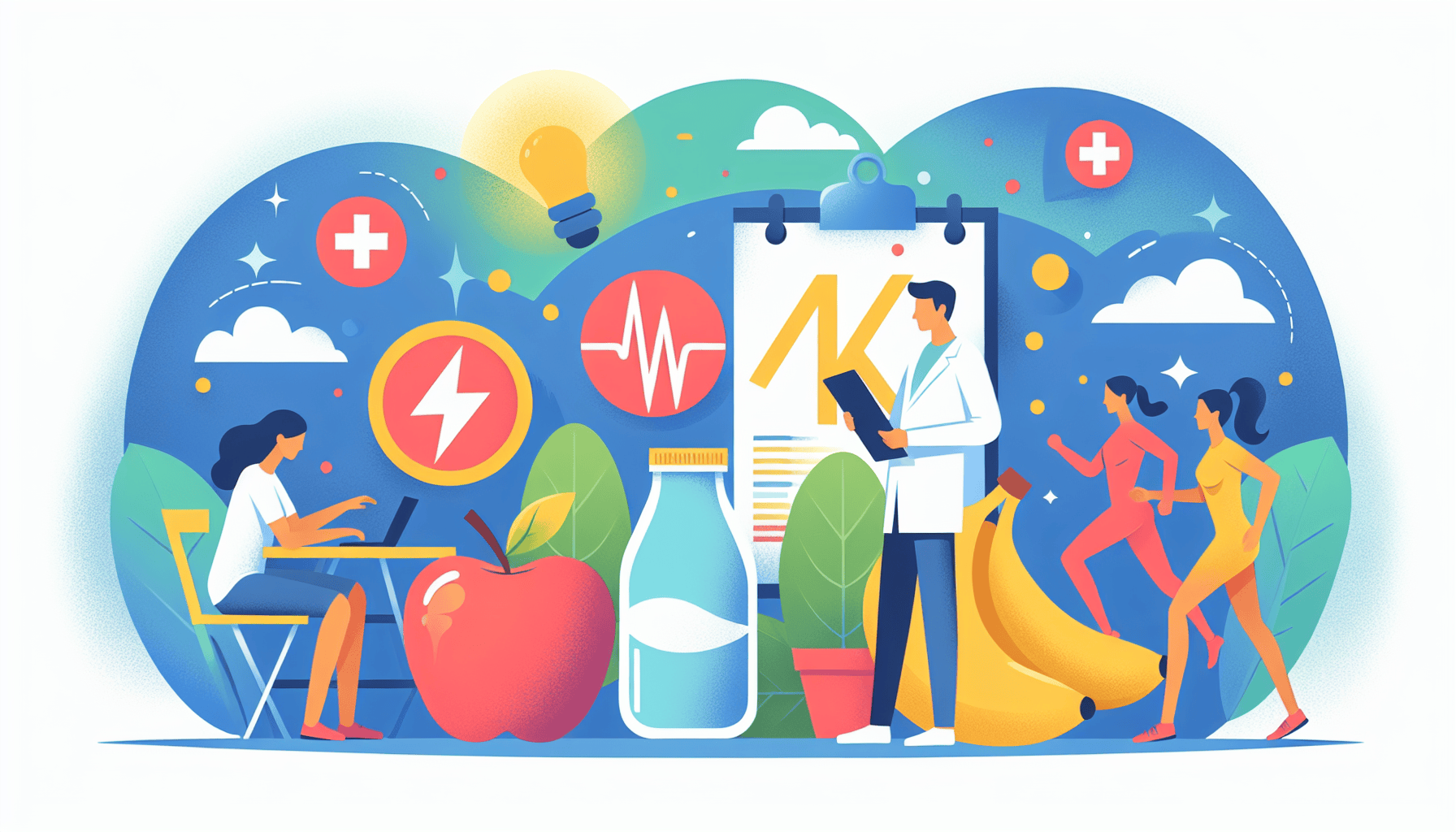Potassium is an essential mineral that plays a crucial role in maintaining your body's normal functioning. It is necessary for the proper function of your heart, kidneys, and other organs. In this article, we'll explore the benefits of potassium, how to get enough potassium from your diet, and the potential risks associated with potassium supplements.
The Benefits of Potassium
Adequate potassium intake is associated with several health benefits, including:
Reduced risk of high blood pressure
Lower risk of heart disease and stroke
Decreased risk of arthritis, cancer, and digestive disorders
Improved fertility
Sources of Potassium
Most people who eat a healthy, balanced diet should get enough potassium naturally. Good natural food sources of potassium include:
Keep in mind that some cooking methods, such as boiling, can decrease the potassium content in certain foods.
Potassium Deficiency and Supplementation
Potassium deficiencies are more common in people who:
Use certain medications, such as diuretics
Have physically demanding jobs or exercise intensely in hot climates
Have health conditions that affect digestive absorption, like Crohn's disease
Have an eating disorder
Smoke
Abuse alcohol or drugs
For people with low potassium levels, doctors may recommend improved diets or potassium supplements to prevent or treat associated health conditions. The adequate intake (AI) for potassium varies by age and life stage, ranging from 400 mg/day for infants to 3,400 mg/day for adults. Always take potassium supplements with a full glass of water or juice.
Risks and Side Effects of Potassium Supplements
While potassium is generally safe at normal doses, high doses of potassium supplements can be dangerous or even deadly. Possible side effects include upset stomach and allergic reactions. Signs of a potassium overdose include muscle weakness or paralysis, irregular heartbeat, confusion, tingling sensation in the limbs, and coma.
People with certain health conditions, such as kidney disease, diabetes, heart disease, Addison's disease, or stomach ulcers, should never take potassium supplements without consulting a doctor first.
In conclusion, potassium is a vital mineral for maintaining good health. By eating a balanced diet rich in potassium sources and talking to your doctor about any potential need for supplementation, you can ensure that you're getting the right amount of this essential nutrient while minimizing the risks associated with excessive intake.
For more information on potassium and its role in a healthy diet, visit:
The Bottom Line
Getting adequate amounts through whole foods like leafy greens, potatoes, and citrus fruits is the safest approach, as the body absorbs dietary sources more gradually than supplements. If you're experiencing muscle weakness, heart palpitations, or taking medications that affect levels, Doctronic can help you understand your symptoms and determine if testing is needed.



